


MAIN INFORMATION
Natalie Wong, New Zealand.
Felipe Fernandez, Chile.
Natalie and Felipe met in New Zealand and have been together since March 2018. They have lived together in Chile and were planning to live together in New Zealand, after Natalie had to return in 2019.
Because of Covid-19, they last saw each other in November 2019.
They are currently 9,692 km apart.
Felipe Fernandez, Chile.
Natalie and Felipe met in New Zealand and have been together since March 2018. They have lived together in Chile and were planning to live together in New Zealand, after Natalie had to return in 2019.
Because of Covid-19, they last saw each other in November 2019.
They are currently 9,692 km apart.
STORY OF SEPARATION
From the start of their relationship, Natalie and Felipe knew it would be complicated because of the distance between them. “Living in limbo for three years took a toll on our mental health,” reflects Natalie. Both she and Felipe have struggled with anxiety and symptoms of depression. “We just wanted to be together so much, and the worry was 24/7 because we felt helpless not having any control over our lives. We gave up all our original life plans for each other. And yet three years on, we were still waiting for one government official to decide our future.” Natalie describes the feeling as a grey cloud hanging above their heads. Constant anxiety about navigating visas and finding ways to be together.
Covid-19 exacerbated this. New Zealand’s borders closed, and immigration stopped processing visa applications altogether. “We wanted a decision on if we could plan a life together,” continues Natalie. “Covid-19 meant we had to wait six months to know if they would even process the [Partner of a New Zealander Work Visa for Felipe]. And then another three months submitting another application and waiting for a decision.” The Covid-19-enforced separation would have been painful, regardless, given they could no longer fly to visit one another. But the experience of previous visa rejections made it even harder. Potentially having to endure the crushing feeling of immigration declining their visa-request again paralysed the couple: weeks of work, so much money, and crushing anxiety, gone to waste.
Covid-19 exacerbated this. New Zealand’s borders closed, and immigration stopped processing visa applications altogether. “We wanted a decision on if we could plan a life together,” continues Natalie. “Covid-19 meant we had to wait six months to know if they would even process the [Partner of a New Zealander Work Visa for Felipe]. And then another three months submitting another application and waiting for a decision.” The Covid-19-enforced separation would have been painful, regardless, given they could no longer fly to visit one another. But the experience of previous visa rejections made it even harder. Potentially having to endure the crushing feeling of immigration declining their visa-request again paralysed the couple: weeks of work, so much money, and crushing anxiety, gone to waste.
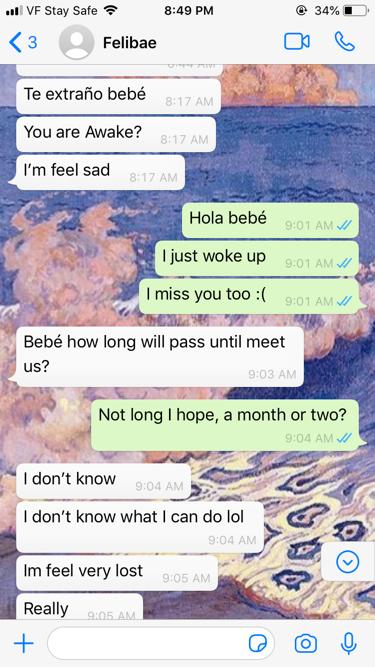
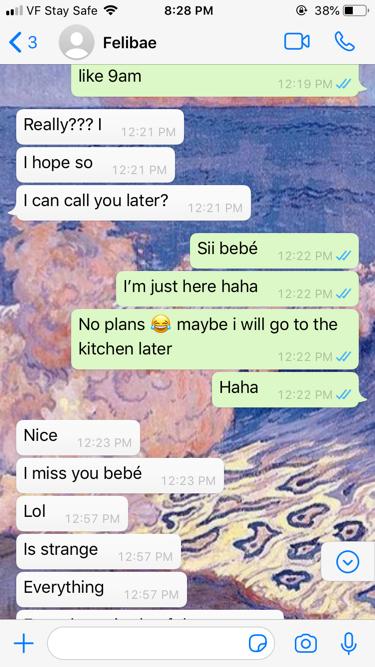
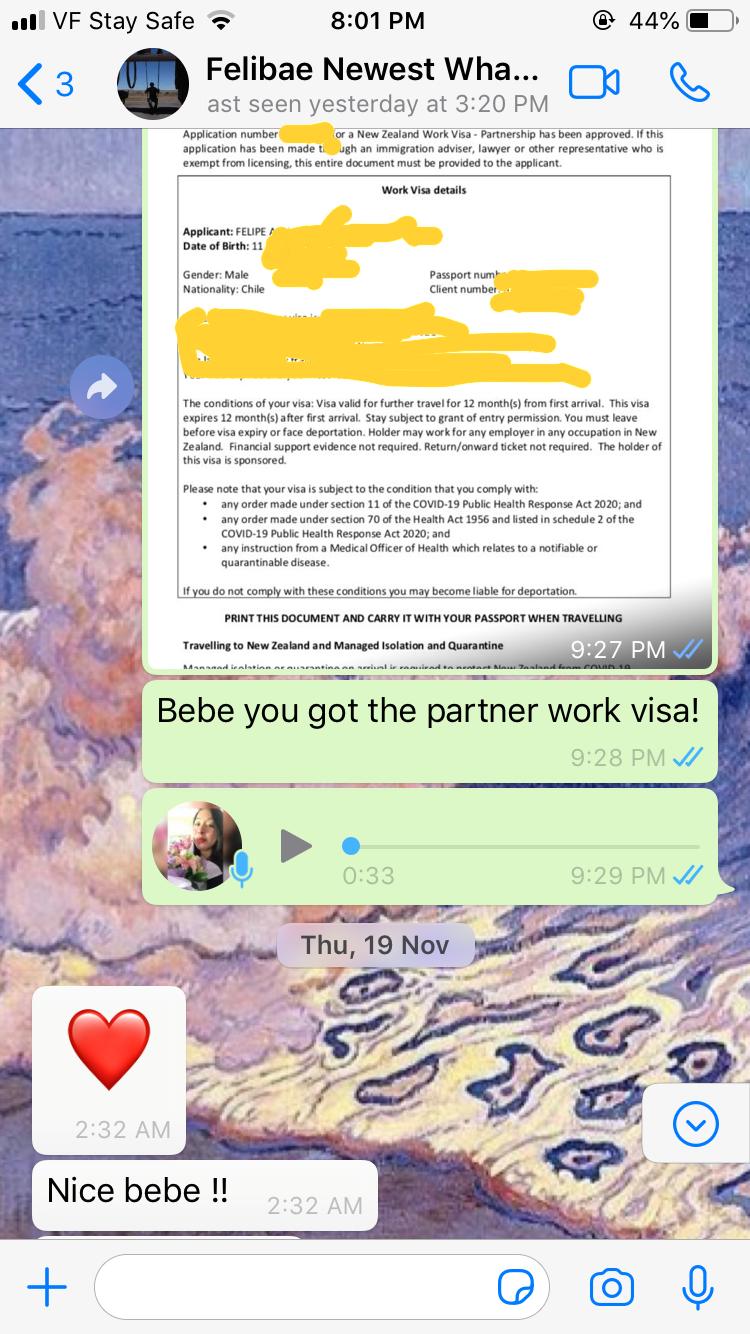
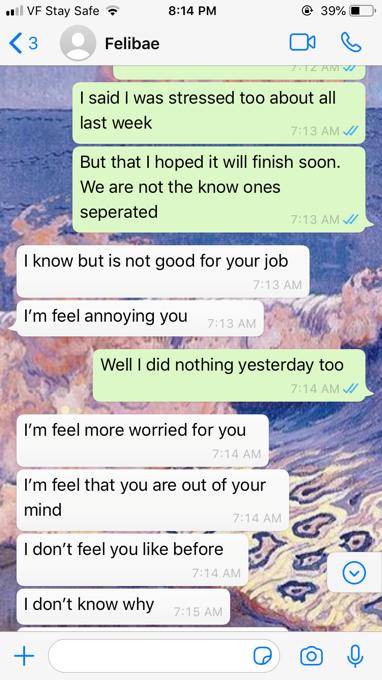
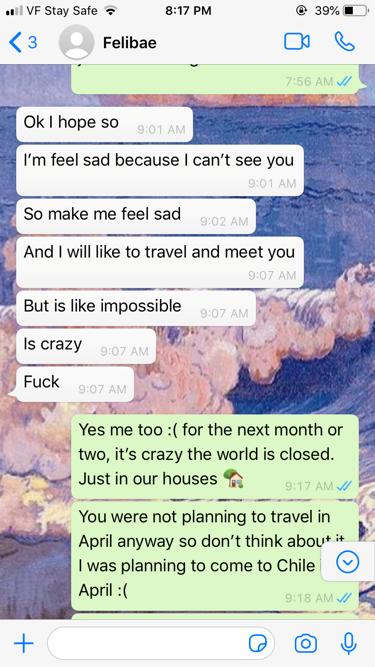
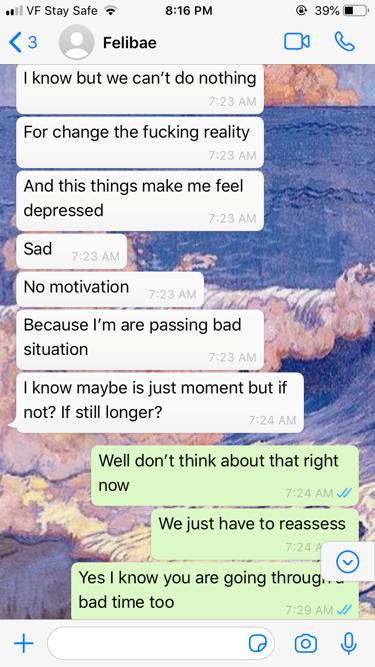

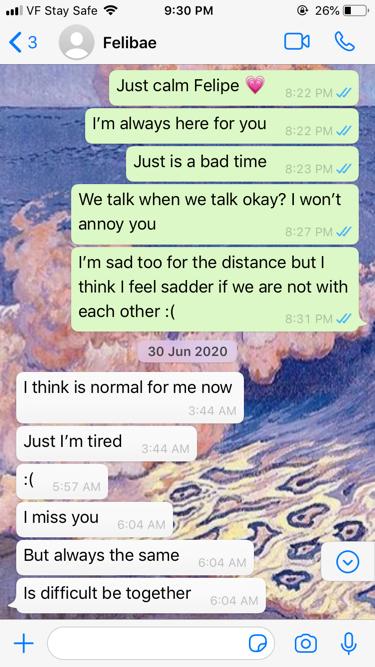
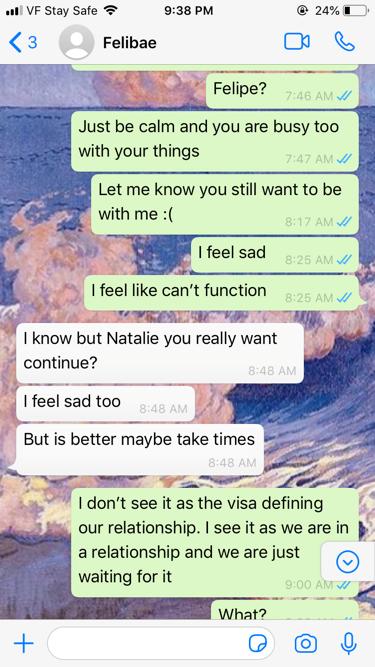

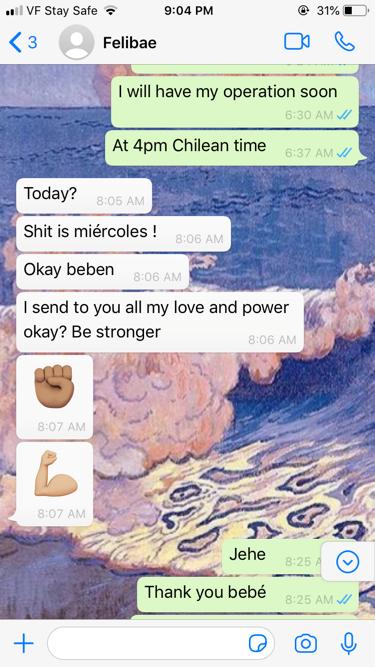
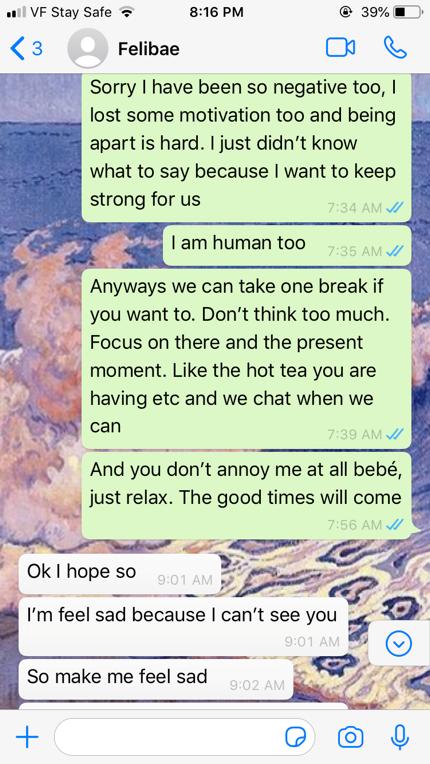
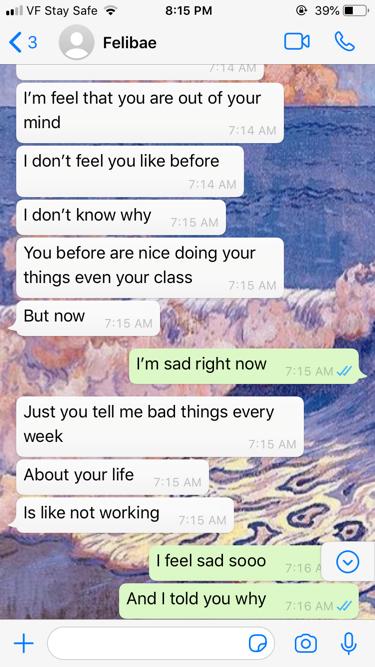
“That’s what is potentially good about Covid-19 for me. It might lead to some action. If it leads to some genuine political will to look at these issues, get them out on the table, and reformulate everything. And if it builds some empathy, people suddenly understand what migrants have gone through because they have had to go through it themselves for the first time.”
Katy Armstrong, Immigration Advisor
“That’s what is potentially good about Covid-19 for me. It might lead to some action. If it leads to some genuine political will to look at these issues, get them out on the table, and reformulate everything. And if it builds some empathy, people suddenly understand what migrants have gone through because they have had to go through it themselves for the first time.”
Katy Armstrong, Immigration Advisor

TIME APART
In January 2020, Natalie and Felipe submitted an application to New Zealand Immigration for a Partner of a New Zealander Work Visa for Felipe. The application involved sending 5000 pages of evidence of them living in a "genuine and stable" relationship. The paper-evidence weighed 7.3 kilograms and comprised social media conversations, photographs, uber and dinner receipts, and more. “I included chats between Felipe’s mum and me to prove we were all living together [in Chile]. Conversations like ‘there are lentils in the fridge’,” says Natalie. The couple spent weeks preparing material: Natalie devoted 10 days alone to trawling through their social media conversations.
Felipe and Natalie planned to meet in Chile in April 2020 while waiting for the visa to be processed. However, Covid-19 struck, which put the application on hold, and they have not seen each other since. Following New Zealand’s border closures on 20 March 2020, the couple applied for a humanitarian visa and repeatedly emailed the New Zealand Government asking them to begin processing offshore partner visas again. Their back-up plan was for Natalie to travel to Chile and “fetch” Felipe so that they could fly back to New Zealand together, something that was ironically commonplace among Kiwis during the pandemic.
In October 2020, an immigration advisor submitted another application on their behalf for a critical purpose visa, which would allow Felipe to enter New Zealand despite the border closure. The application topped up their original one, with evidence of their commitment to each other during the pandemic. "You can't fake that kind of long-distance," says Natalie. Finally, in November 2020, immigration approved the Partner of a New Zealander Visa. Felipe will relocate in March 2021. It has been over a year since he and Natalie last saw each other and around three years since they made their first application. “Now, the healing begins,” says Natalie, “and the reclamation of our lives, finances, and youthfulness. After the visa approval, a calm came over our relationship and minds. It's liberating.”
Felipe and Natalie planned to meet in Chile in April 2020 while waiting for the visa to be processed. However, Covid-19 struck, which put the application on hold, and they have not seen each other since. Following New Zealand’s border closures on 20 March 2020, the couple applied for a humanitarian visa and repeatedly emailed the New Zealand Government asking them to begin processing offshore partner visas again. Their back-up plan was for Natalie to travel to Chile and “fetch” Felipe so that they could fly back to New Zealand together, something that was ironically commonplace among Kiwis during the pandemic.
In October 2020, an immigration advisor submitted another application on their behalf for a critical purpose visa, which would allow Felipe to enter New Zealand despite the border closure. The application topped up their original one, with evidence of their commitment to each other during the pandemic. "You can't fake that kind of long-distance," says Natalie. Finally, in November 2020, immigration approved the Partner of a New Zealander Visa. Felipe will relocate in March 2021. It has been over a year since he and Natalie last saw each other and around three years since they made their first application. “Now, the healing begins,” says Natalie, “and the reclamation of our lives, finances, and youthfulness. After the visa approval, a calm came over our relationship and minds. It's liberating.”
“I still remember that exact feeling when the borders closed. It was the uncertainty that made it quite intense. That kind of uncertainty where you just don’t know if you can be together or not. You’re just kind of waiting for someone to decide if your relationship is real and if you can be together, if you can have a life together. It’s a weird feeling, yeah”
Natalie Wong
“I still remember that exact feeling when the borders closed. It was the uncertainty that made it quite intense. That kind of uncertainty where you just don’t know if you can be together or not. You’re just kind of waiting for someone to decide if your relationship is real and if you can be together, if you can have a life together. It’s a weird feeling, yeah”
Natalie Wong





